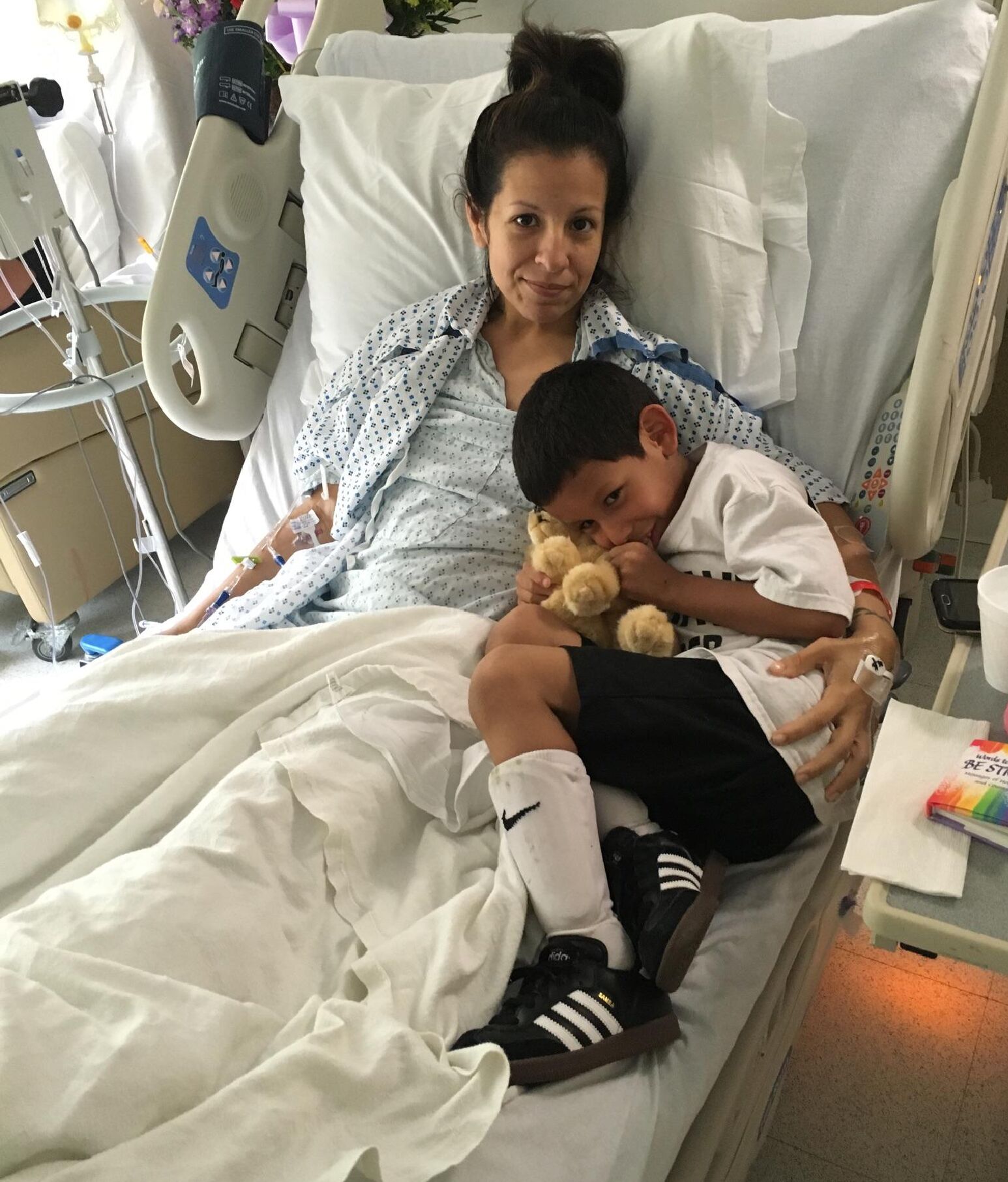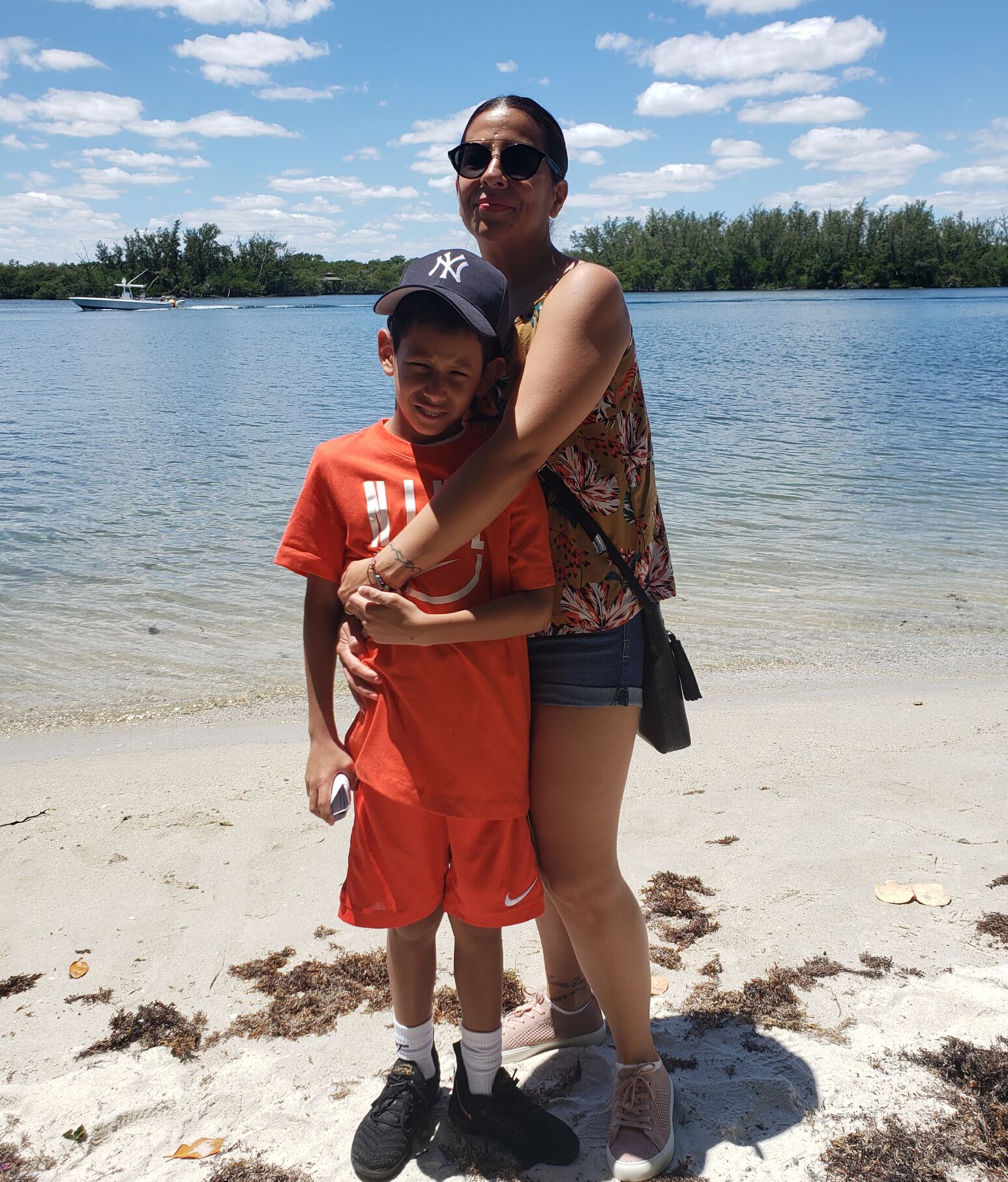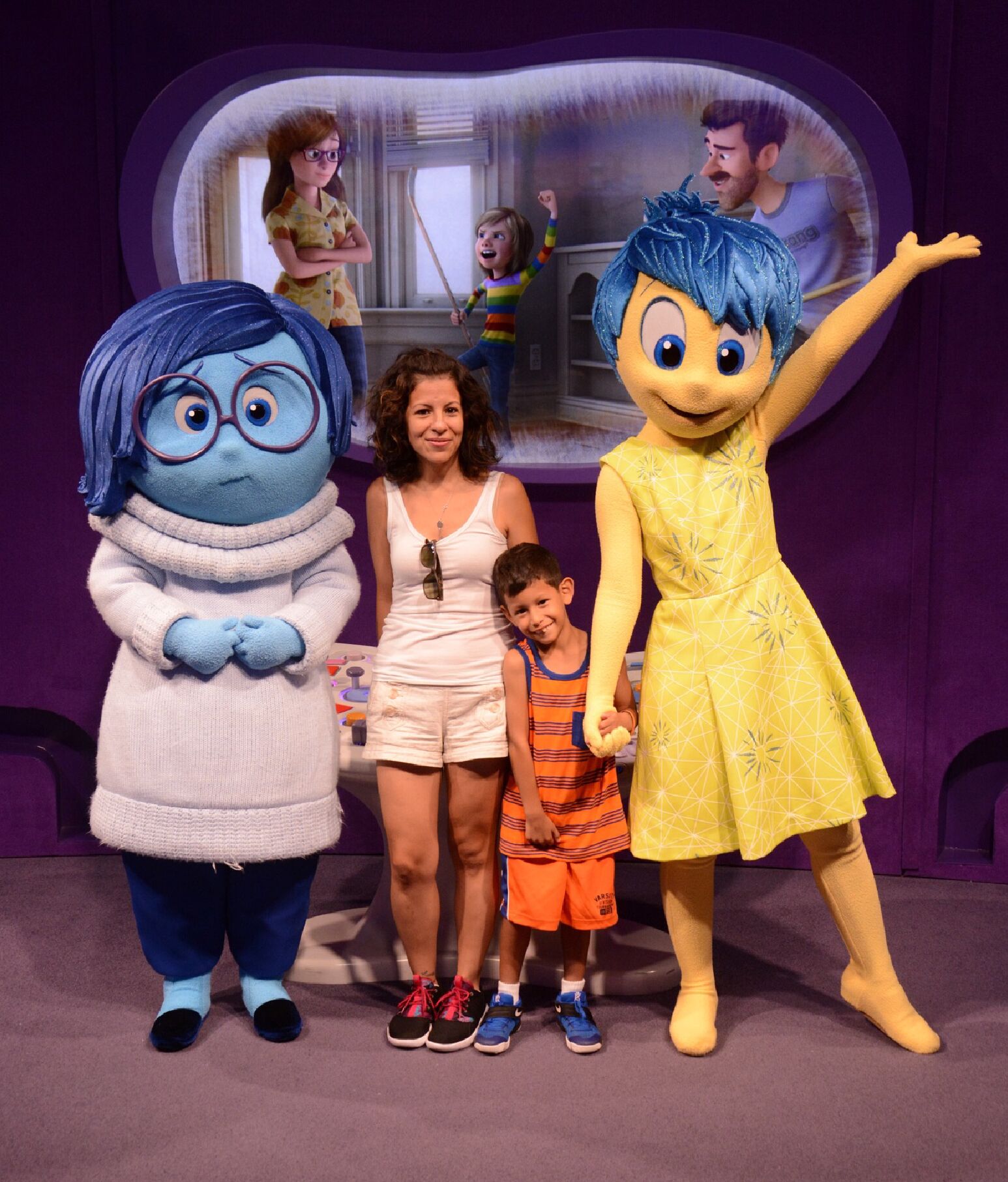chronic diseases/conditions
The Two Main Types Of Pain

One mom’s shocking diagnosis, and the lessons she learned along the way.
5 min read
Three years ago, when I was 32, my gastroenterologist told me I should have a colonoscopy. I had been experiencing some pain in the lower left side of my abdomen, and I'd already been to see my gynecologist (who said the problem wasn't a ruptured cyst) and a urologist (who said it wasn’t kidney stones) before I landed in the gastroenterologist's office. I made the colonoscopy appointment—and then promptly canceled it.
Who gets a colonoscopy at age 32? It seemed like an overreaction (despite the fact that the radiologist had spotted a thickening of part of my colon when I had a CAT scan to check for kidney stones) and the idea of downing tons of laxatives so a doctor could examine my insides was not at all appealing.
I was hoping I'd make a few tweaks to my diet and feel better, but that's not what happened. The pain intensified, and I began waking up at night with cold sweats. I started to get nervous, so I called the gastroenterologist's office to reschedule the colonoscopy. The doctor called me back himself and said, "You can't cancel again. I need to rule out colon cancer."
So I had my colonoscopy. As soon as I woke up from the anesthesia, I knew something was seriously wrong.
As I came to in the recovery area, I noticed my doctor, Dr. Steven Goldenberg, was walking around talking to other patients and sending them on their way with reminders to return in three to five years. But not me. Instead, he asked me who had accompanied me to the procedure (my brother and sister were in the waiting room), told me to get dressed, and instructed me to meet him in his office.
Behind closed doors, Dr. Goldenberg got straight to the point: I clearly had colon cancer, and it was advanced. He told me that there was a large mass blocking my left descending colon. He guessed that it was stage 2 or 3 cancer, but urged me not to wait for the biopsy results—I needed to act now.
I was in shock and pretty much went into autopilot. I was sent to Dr. John Procaccino, chief of the division of colorectal surgery at Northwell Health’s North Shore University Hospital. Just eight days after my colonoscopy, I was in the operating room having major surgery. Dr. Procaccino successfully removed the mass and 55 lymph nodes in an attempt to catch additional cancer cells that might have spread.

When I awoke from surgery I was in so much pain, I couldn't speak. I remember tears just running down my face; it was worse than childbirth. But as soon as the nurses saw my reaction, they were able to manage my pain, and it wasn't too bad.
I spent a week in the hospital recovering. When I finally went home, I received the biopsy results. My doctor had been right—my cancer was stage 3. I soon met with an oncologist who advised getting chemotherapy. I left the office saying I wasn't going to do it, despite the fact that skipping out meant I'd have a 20% risk of recurrence within two years.
I think most people are scared of chemo—I definitely was. But I ultimately changed my mind and decided to go through with it. Why? Looking at my son, Merge, who was 7 at the time, I realized I couldn’t afford to be selfish. I needed to do it for him.

My oncologist put me on a regimen that involved getting chemo for 46 hours straight: I'd start out at Northwell’s Monter Cancer Center in New Hyde Park, NY, where I would have blood drawn and start receiving one of the drugs. Then a nurse would meet me at home to set up the other chemo medications. I had six rounds of treatment over three months, each time "connecting" on a Friday and "disconnecting" on a Sunday. Throughout the weekend, I wore a little fanny pack that contained the necessary equipment; the drugs went into my body through a port.
Most of the time, I felt surprisingly good. While the drugs were being infused, I was able to hide the tubing in my sweater and go to my son's soccer games. But when Sunday rolled around, I'd often feel a bit nauseated and tired, and my taste buds were just shot. But sometimes I felt well enough to return to work the next day.
I know there are a number of types of chemotherapy, and everyone reacts differently, but I think people don’t know how much things have changed from 10 or 20 years ago. I had anti-nausea medication mixed in with the chemo drugs, and overall the treatment was very manageable. I'm sure a lot of people believe that chemo is always excruciating—I know I did—but for me, it wasn't terrible at all. The best part, of course, was that it increased my chances of being able to watch my son grow up.
Another common misconception is that colon cancer is something that only happens to older people or those with a strong family history of the disease. No one in my family has ever had colon cancer, and since my diagnosis, I've learned that the disease is becoming more prevalent among people in their 20s and 30s, though it's still most common after age 50.
Despite my initial reluctance about having a colonoscopy, I now tell anyone who's experiencing ongoing stomach issues to see a gastroenterologist and get a colonoscopy. The prep is the worst part, but it's bearable, and it just might save your life.
I wouldn't say that cancer has drastically changed me, but since my ordeal, I’m a proponent of enjoying life to its fullest. I go on more vacations and encourage my son to jump into whatever he loves. If he wants to do hockey, soccer and football, I'll gladly sign him up for all three. I've learned not to take any opportunities for granted. And I can’t wait to see what life has in store for us.

The Well is Northwell Health’s commitment to the future of health care. In this time of information overabundance, much of which is inaccurate, unhelpful, or even difficult to understand, Northwell Health is on a mission to make a difference as an honest, trusted, and caring partner. The site connects with consumers to provide them with personalized content that reduces their stress, makes them laugh, and ultimately feel more confident and capable on their healthcare journey.